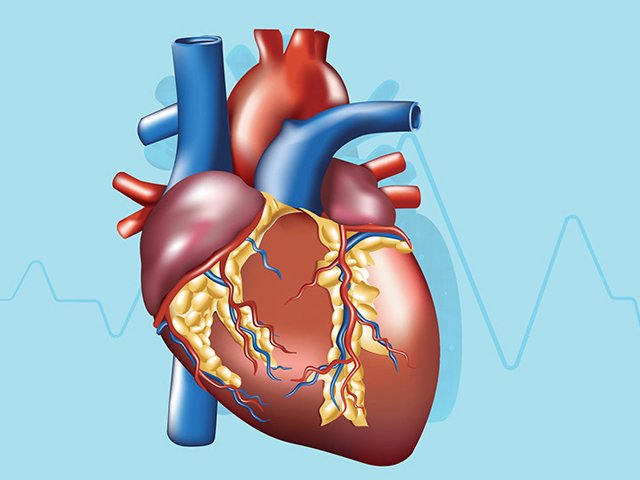Know Your Heart

At Aruna Cardiac Care Hospital, we believe that understanding your heart and its health is the first step toward a longer, healthier life. Heart disease remains one of the leading causes of death worldwide, but the good news is that many heart conditions are preventable with the right knowledge and lifestyle choices.
Here’s a guide to help you understand your heart, its function, and how you can take proactive steps to protect it.
What is the Heart and How Does it Work?
The heart is a vital organ in the body, responsible for pumping blood throughout the circulatory system. It supplies oxygen and nutrients to tissues and removes carbon dioxide and waste. The heart is a muscular organ about the size of your fist, located slightly left of the center of your chest. It works tirelessly, beating about 70 to 75 times per minute for an average of 100,000 beats per day!
The heart consists of four chambers: two atria (upper chambers) and two ventricles (lower chambers). The right side of the heart receives deoxygenated blood from the body and pumps it to the lungs, while the left side receives oxygenated blood from the lungs and pumps it to the rest of the body.
The Importance of a Healthy Heart
A healthy heart ensures that all organs and tissues in your body receive the necessary oxygen and nutrients to function optimally. When your heart is compromised due to disease or poor lifestyle choices, it can lead to conditions such as:
- Coronary Artery Disease (CAD): A condition where the blood vessels supplying the heart become narrowed or blocked, reducing blood flow.
- Heart Failure: A condition where the heart is unable to pump enough blood to meet the body’s needs.
- Arrhythmias: Abnormal heart rhythms that can affect the heart’s ability to function effectively.
- Heart Attacks and Strokes: Blocked blood flow to the heart or brain, often caused by clots, leading to severe damage.
Signs of Heart Disease
It’s important to recognize the signs and symptoms of heart disease early so you can seek treatment before it becomes more serious. Common signs of heart problems include:
- Chest pain or discomfort
- Shortness of breath
- Unexplained fatigue
- Dizziness or lightheadedness
- Pain in the neck, jaw, or back
- Swelling in the legs, ankles, or feet
If you experience any of these symptoms, it’s crucial to consult with a healthcare provider, as early detection and intervention can save lives.
Risk Factors for Heart Disease
While some factors like age and family history are beyond your control, others can be managed through lifestyle changes. Here are the key risk factors for heart disease:
- High Blood Pressure (Hypertension): It forces the heart to work harder and can damage blood vessels.
- High Cholesterol: Elevated cholesterol levels can lead to plaque buildup in the arteries.
- Smoking: Smoking damages blood vessels and increases the risk of heart disease.
- Obesity: Being overweight increases the risk of hypertension, diabetes, and high cholesterol.
- Physical Inactivity: A sedentary lifestyle can contribute to weight gain and poor heart health.
- Diabetes: High blood sugar levels can damage blood vessels over time, increasing the risk of heart disease.
How to Keep Your Heart Healthy
The good news is that many of the risk factors for heart disease are preventable or manageable with the right habits. Here’s what you can do to improve your heart health:
-
Eat a Heart-Healthy Diet: Focus on whole grains, fruits, vegetables, lean proteins, and healthy fats. Reduce your intake of processed foods, sugars, and unhealthy fats.
-
Exercise Regularly: Aim for at least 30 minutes of moderate exercise, such as walking, cycling, or swimming, most days of the week.
-
Quit Smoking: Smoking is a major contributor to heart disease. Quitting can dramatically improve your heart health.
-
Monitor Your Blood Pressure and Cholesterol: Regular check-ups can help you track your numbers and take action if needed.
-
Maintain a Healthy Weight: Losing excess weight reduces the strain on your heart and lowers the risk of heart disease.
-
Manage Stress: Chronic stress can contribute to heart problems. Practice relaxation techniques such as meditation, yoga, or deep breathing exercises.
-
Get Regular Check-ups: Regular check-ups with your healthcare provider are essential for monitoring your heart health. Early detection can make a significant difference in preventing or managing heart disease.
When to Seek Medical Help
It’s important to seek medical attention if you experience any unusual symptoms or have risk factors for heart disease. Early intervention and proper management can make a significant difference in improving your heart health and overall well-being.
At Aruna Cardiac Care Hospital, we are dedicated to providing comprehensive cardiac care and support to help you maintain a healthy heart. From prevention and diagnostic testing to advanced treatments, our team of experienced cardiologists is here to guide you every step of the way.
If you have any concerns about your heart health or need advice on maintaining a healthy heart, don’t hesitate to contact us. Your heart matters, and together, we can work toward a healthier future!
Contact Us Today for Expert Cardiac Care at Aruna Cardiac Care Hospital!
